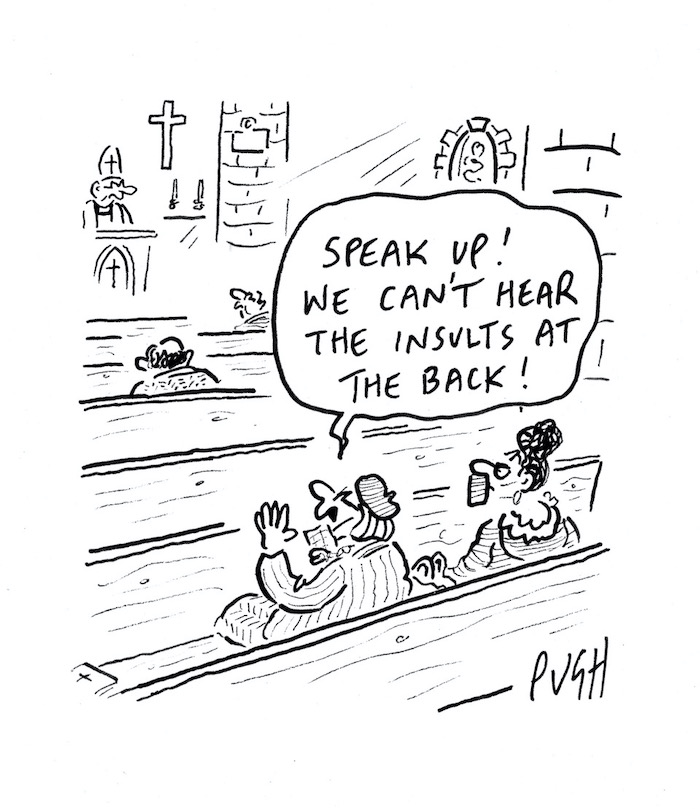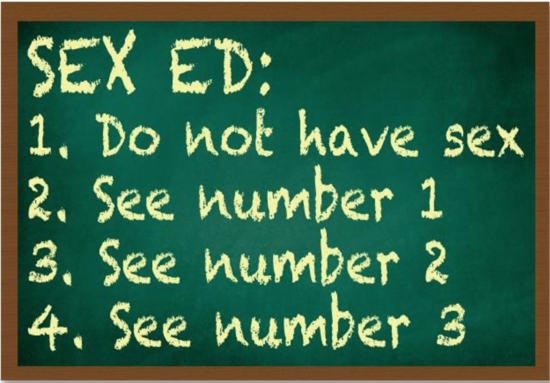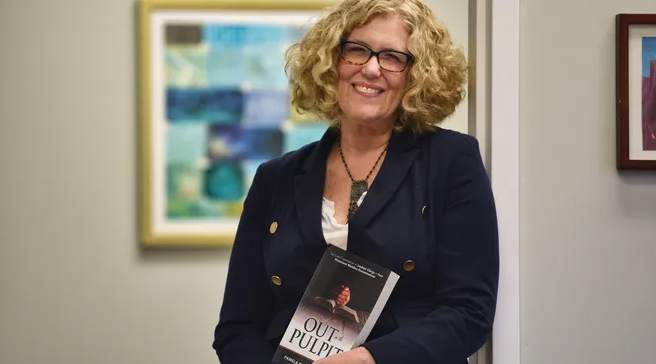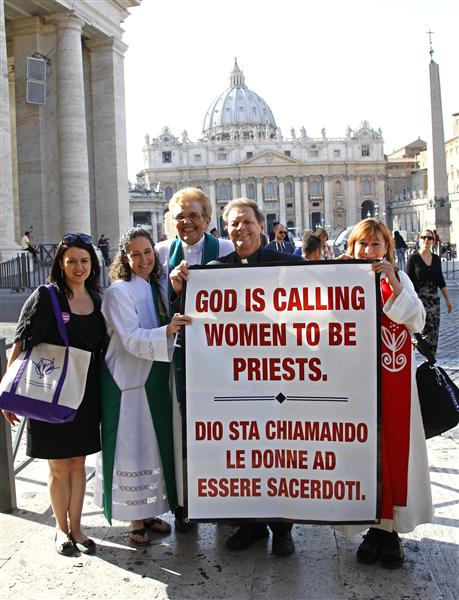File under: Insulated, monolithic, callous, tone deaf church power structure
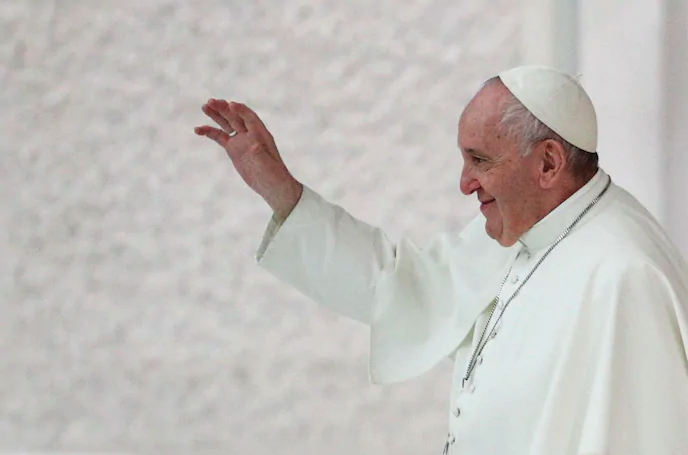
By NICOLE WINFIELD
The Vatican decreed Monday that the Catholic Church won’t bless same-sex unions since God “cannot bless sin.”
The Vatican’s orthodoxy office, the Congregation for the Doctrine of the Faith, issued a formal response Monday to a question about whether Catholic clergy have the authority to bless gay unions. The answer, contained in a two-page explanation published in seven languages and approved by Pope Francis, was “negative.”
The note distinguished between the church’s welcoming and blessing of gay people, which it upheld, but not their unions. It argued that such unions are not part of God’s plan and that any such sacramental recognition could be confused with marriage.
The note immediately disheartened advocates for LGBT Catholics and threw a wrench in the debate within the German church, which has been at the forefront of opening discussion on hot-button issues such the church’s teaching on homosexuality.
Francis DeBernardo, executive director of New Ways Ministry, which advocates for greater acceptance of gays in the church, predicted the Vatican position will be ignored, including by some Catholic clergy.
“Catholic people recognize the holiness of the love between committed same-sex couples and recognize this love as divinely inspired and divinely supported and thus meets the standard to be blessed,” he said in a statement.
The Vatican holds that gay people must be treated with dignity and respect, but that gay sex is “intrinsically disordered.” Catholic teaching holds that marriage, a lifelong union between a man and woman, is part of God’s plan and is intended for the sake of creating new life.
Since gay unions aren’t intended to be part of that plan, they can’t be blessed by the church, the document said.
“The presence in such relationships of positive elements, which are in themselves to be valued and appreciated, cannot justify these relationships and render them legitimate objects of an ecclesial blessing, since the positive elements exist within the context of a union not ordered to the Creator’s plan,” the response said.
God “does not and cannot bless sin: He blesses sinful man, so that he may recognize that he is part of his plan of love and allow himself to be changed by him,” it said.
Francis has endorsed providing gay couples with legal protections in same-sex unions, but that was in reference to the civil sphere, not within the church. Those comments were made during a 2019 interview with a Mexican broadcaster, Televisa, but were cut by the Vatican until they appeared in a documentary last year.
While the documentary film fudged the context, Francis was referring to the position he took when he was archbishop of Buenos Aires. At the time, Argentina’s lawmakers were considering approving gay marriage, which he and the Catholic Church opposed. Then-Cardinal Jorge Mario Bergoglio instead supported providing legal protections for gays in stable unions through a so-called “law of civil cohabitation.”
Francis told Televisa: “Homosexual people have the right to be in a family. They are children of God.” Speaking of families with gay children, he said: “You can’t kick someone out of a family, nor make their life miserable for this. What we have to have is a civil union law; that way they are legally covered.”
In the new document and an accompanying unsigned article, the Vatican said questions had been raised about whether the church should bless same-sex unions in a sacramental way in recent years, and after Francis had insisted on the need to better welcome and accompany gays in the church.
The Rev. James Martin, a Jesuit and advocate for building bridges with the LGBT community, said the Vatican note appeared to be a response to pressures within the German church before a consultative assembly to consider bestowing church blessings on same-sex couples. The German church has been at the forefront of pushing the debate on celibacy, contraception and the church’s outreach to gay Catholics, pressured by a powerful lay Catholic group demanding change.
“It seems to be the Vatican’s response to some German bishops who had mentioned this possibility, in the run up to their country’s synod, as a way of reaching out to LGBTQ people,” Martin said in an email.
In a statement, the head of the German bishops’ conference, Bishop Georg Bätzing, said the new document would be incorporated into the German discussion, but he suggested that the case was by no means closed.
“There are no easy answers to questions like these,” he said, adding that the German church wasn’t only looking at the church’s current moral teaching, but the development of doctrine and the actual reality of Catholics today.
Other commentators noted that Catholic Book of Blessings contains rites of blessings that can be bestowed on everything from new homes and factories to animals, sporting events, seeds before planting and farm tools.
In the article, the Vatican stressed the “fundamental and decisive distinction” between gay individuals and gay unions, noting that “the negative judgment on the blessing of unions of persons of the same sex does not imply a judgment on persons.”
But it explained the rationale for forbidding a blessing of such unions, noting that any union that involves sexual activity outside of marriage cannot be blessed because it is not in a state of grace, or “ordered to both receive and express the good that is pronounced and given by the blessing.”
And it added that blessing a same-sex union could give the impression of a sort of sacramental equivalence to marriage. “This would be erroneous and misleading,” the article said.
In 2003, the same Vatican office issued a similar decree saying that the church’s respect for gay people “cannot lead in any way to approval of homosexual behavior or to legal recognition of homosexual unions.”
Doing so, the Vatican reasoned then, would not only condone “deviant behavior,” but create an equivalence to marriage, which the church holds is an indissoluble union between man and woman.
Sister Simone Campbell, executive director of the U.S.-based NETWORK Lobby for Catholic Social Justice and an advocate for greater LGBTQ inclusion in the church, said she was relived the Vatican statement wasn’t worse.
She said she interpreted the statement as saying, “You can bless the individuals (in a same-sex union), you just can’t bless the contract.”
“So it’s possible you could have a ritual where the individuals get blessed to be their committed selves.”
Complete Article ↪HERE↩!


